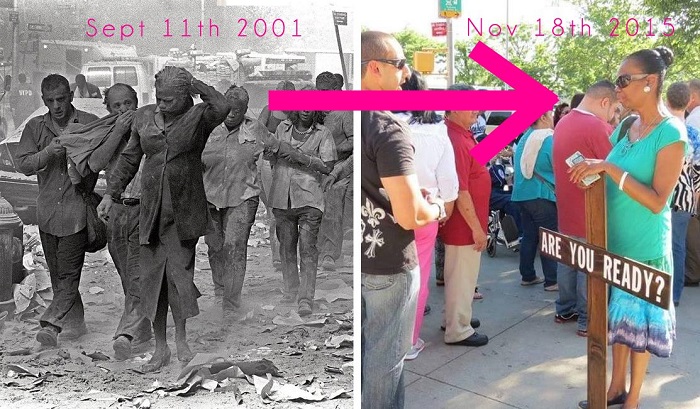As one year ends and a new one begins, we are afforded with an opportunity to assess our lives and consider areas in which we want to improve. Certainly this can be “overdone” in terms of morbid introspections, but, frankly, this usually isn’t the way we falter. Rather, we too often continue on from year to year with too little careful thought toward the ways we have failed the previous year and the ways we might seek to succeed in the coming year.
I can’t take a spiritual inventory of your life, nor do I know all the ins and outs of your walk with Christ. But, in general, I do know this: your time in the Bible could be improved. For some of you, that means actually committing to read the Bible every day. For others, it means reading more each day than you currently are. And for others, it may simply mean using the time you already spend in the Bible more efficiently. Of course, I do hold out that some of you reading this don’t need much improvement at all. But for most of us, we do.
What We Are Reading
In John Piper’s book A Peculiar Glory, he says “The whole Bible, properly understood, has this divine purpose: to communicate or display the glory of God” (p. 195).
So many people have no idea who God really is. And too many professing Christians have a bare minimum understanding of who God is (at best). Therefore, many books, songs, ideologies, political positions, and worldviews are formed on a “god” who is far removed from the Lord’s self-disclosure in the Scriptures. What we are reading when we read the Bible is the word of God – the very voice of God Himself in written form.
From Genesis to Revelation, every jot, tittle, syllable, word, sentence, paragraph, chapter, and book is the inerrant and infallible word of the living God. What we are reading when we read the Bible is God’s idea of who God is.
Why We Read the Bible
If the above is true, and it only takes a cursory reading of Scripture from a true Believer to see that it is, then we read the Bible to know this God in all of His glory. We don’t read the Bible in order to level-up at the next Bible Bee or simply to defeat alternate worldviews. Sure, those things may come as a result of reading the Bible well. But those things (and many others) aren’t why we ultimately read the Bible.
We ultimately read the Bible so that we may know God more through Christ and His saving work — the focal point of Divine revelation. Reading the Bible isn’t about checking off a list or avoiding guilty feelings. We read the Bible because we have tasted and seen that God is good and we want more of Him.
When believers shortchange the time they spend in Scripture, they greatly inhibit their growth in the Lord. Sure, all true Christians will continue to grow over time. And those who even only expose themselves to paltry amounts of the Bible will find it nourishment enough to keep maturing through the years. But these years of maturity will be slow, tedious, and lacking in both the delight and fruit one might enjoy in his or her Christian walk had they just sought to seek the Lord through more focused time in His Word.
How to Read the Bible
The Bible is God’s book and we read it to know Him more through Christ. So, what practical ways might we read this Book?
First of all, there is no “one size fits all” reading plan. I’ll share some ideas on plans in just a minute. But before I do, let me remind us all that reading the Bible requires the Divine illumination of the Holy Spirit. As we read we use our human faculties to process words, phrases, grammar, and context. But it is the Holy Spirit who reveals truth to us. I say this to remind us to read the Bible prayerfully (Ps. 119:18).
Now, practically, what might you do to read the Bible better in 2019 than you are in 2018?
Plans —
Again, not all plans are for everyone. But without a plan, you will often sputter out too soon and go back on your commitments. My personal favorite has been the Discipleship Journal Bible Reading Plan. I’ve also used the M’Cheyene Reading Plan. Other plans I’ve used have been the 5x5x5 New Testament Reading Plan as an addendum to other things I’m doing. I’ve also even gone through the Professor Horner reading plan.
The first time I read through the Bible I just divided the number of pages in my bible by how long I wanted it to take to read through it. If there are 1809 pages in your bible and you want to be finished in 365 days, read 5 pages a day.
But the point here is not to “get through the Bible.” The point is to know God. It’s not about checking off a box on a spiritual to-do list, but it’s about growing in the grace and knowledge of our Lord and Savior Jesus Christ through being nourished by His Word.
Repetition —
Two things have helped me understand the Bible more than anything else. The first is reading large chunks of Scripture during one sitting. Blocking off time to read the book of Isaiah, or shorter New Testament books, all in one sitting is helpful. Also, reading several chapters from several portions of the Bible in one sitting has also helped me. I think the point is reading large chunks during one sitting helps your mind see some big picture truths you may have missed if just reading a few bits at a time.
The other thing that has helped me tremendously is reading a book over and over again. I don’t mean like 3 or 4 times. I mean like 25 times or more. Maybe instead of one of the plans above you just want to pick a book like Ephesians and keep reading through it over and over for a whole month or two. Or you might even add that into your current plan if you want.
The point is, don’t make reading the Bible just a 2019 goal. Make this a goal for the rest of your life. See the big picture here. Keep reading. Know that the goal isn’t merely informational, but transformational.
Endurance —
One thing that has helped me with consistency is having a journal. I write a little bit in it about what’s going on in my life. Sometimes I write prayer requests. Sometimes I write observations from my reading. But the most important thing I do (for me) is write down the chapters I’m reading each day. This helps me keep track of it and in a way keeps me accountable to myself in reading every day. And might I add — what a travesty to have such unrestricted access to God’s Word like we have and not read it every single day.
Habit —
One final piece of advice I’ll give is to read the Bible in the same time and place every day. If you can make a habit of reading early in the morning in your chair, or at lunch in your office, or after supper at the table, you will find yourself getting into a rhythm of Bible reading. I don’t mean to say you won’t have to adjust at times. And there will always be spiritual warfare surrounding your Bible reading! But, as a general rule, forming a habit will prove fruitful to your continued reading.
Conclusion
There is so much more I could say about Bible intake. We didn’t even cover meditation, memorization, or deeper study. But I am convinced that if God’s people will be more committed in 2019 to reading His Book with renewed zeal, hunger, and desire to know Him — perhaps there might be a spiritual awakening in your home, church, or community like you never expected. And perhaps the greatest awakening that is needed will take place in your very own heart.






Robert, thank you very much for the kind words, brother. That sincerely means a lot to me that your spirit…